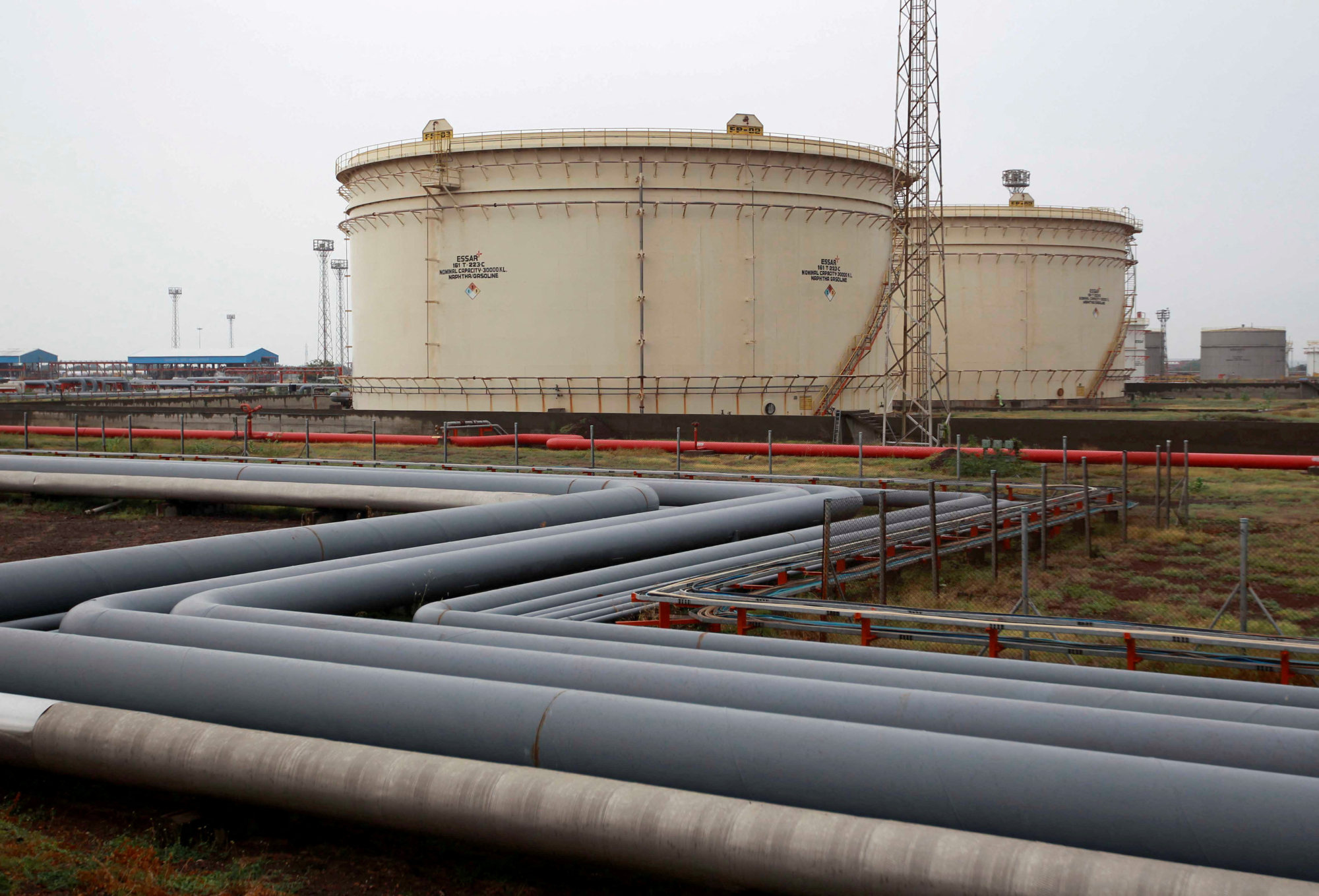
India, China ‘enjoy the discount’ on Russian oil as EU tightens price cap
- Steep discounts have helped New Delhi and Beijing negotiate their purchases of Russian oil products below a price cap imposed by Western nations
- It’s helping to offset cost living increases in Asia’s two biggest economies – and making it easier for Moscow to keep its year-long war-effort afloat
Fresh EU sanctions kicked in a fortnight ago to stop imports of refined petroleum products from Russia. That follows the 27-nation bloc halting its purchases of Russian crude since December.
At the same time, the G7 has imposed a global price cap on Russia’s oil supplies at US$60 per barrel. The EU this month set its cap at US$100 for premium oil products such as diesel and petrol, with a lower US$45 per barrel cap for discount products such as fuel oil.

Global access to ships, marine insurers and other services based in G7 and EU jurisdictions could be affected by the price caps if Russian oil products are bought for more than the maximum price.
But the blow is likely to be cushioned by Asia’s big buyers, whose populations are contending with the pain of inflation and economies emerging from the pandemic years.
“We do believe that China and India will process much more [of the] Russian crude that has been displaced from [the] EU,” said Sushant Gupta, Asia-Pacific research director at consultancy Wood Mackenzie.
“India and China’s purchase of Russian crude is helping to stabilise the global crude markets by providing an outlet for Russian crude.”
Oil’s new map: how India turns Russian crude into the West’s fuel
Top Indian officials have said they will not risk upsetting the economy to uphold sanctions driven by the West.
“We will play the market card,” said Indian Oil Minister Hardeep Singh Puri earlier this month at India Energy Week – a high-profile industry meeting held in Bangalore.
“We will import from wherever it is available on a predictable and sound basis.”
Brent and West Texas Intermediate oil futures have largely held steady, quoting within a narrow band this month of between US$79-US$86 and US$72-US$80 per barrel, respectively.
India’s imports of Russian crude oil were on track to hit an all-time high of 1.9 million barrels a day in February, said Viktor Katona, lead crude analyst at Kpler, a commodities data and analytics company.
I reckon India’s purchases of Russian crude are here to stay
That would represent a 35 per cent month-on-month increase and a nearly 60 per cent increase since December.
“One gets a sense of the ever-growing ties between the two countries,” Katona said.
Last year, India emerged as the top importer of Russian crude oil in the wake of the EU ban on oil imports. Crude oil is converted into fuels such as petrol and diesel at its refineries.
“The only impediment that I see for Indian imports of Russian crude is that the current peak demand season will give way to the monsoon season, starting around April-May, when domestic consumption traditionally takes a step back,” Katona said.
“Beyond this, I reckon India’s purchases of Russian crude are here to stay.”
Diversion from EU
The EU’s decision to halt imports of refined fuel from Russia could force Moscow to divert even more crude to Asia, where Bangladesh and Pakistan join the list of countries ready to snap up bargain imports.
India imports around 85 per cent of its oil needs and its overall demand is likely to increase as it’s expected to be the fastest-growing major economy this year.
Indian petroleum refineries have been running at full capacity and have been processing cheap Russian crude into products for its domestic markets as well as for export to Europe and the US.
“I expect Indian refiners to continue maximising their intake of Russian crude as long as it makes economic sense and there are no logistical challenges,” said Vandana Hari, a Singapore-based oil expert and founder of Vanda Insights.

EU price caps are unlikely to impede Russian oil and oil products trading at steep discounts because of their limited markets, she added.
China’s reopening is expected to add significantly to the region’s demand for crude oil, analysts say. Expectations of oil prices spiking due to increased Chinese consumption have not materialised, however, as Europe and the US are bracing for a recession.
The EU has said that it could revisit the current value of the price caps imposed on Russia’s supplies of oil and oil products depending on market conditions, but the prices were set after months of wrangling between member states.
Some like Poland wanted to reduce the price to US$20-US$30 a barrel – lower than the cost of production of around US$40 a barrel – while others such as Germany and France opposed any overly aggressive cap to avoid destabilising global energy markets.
Despite India’s economic growth, few jobs for youth
India’s retail inflation rose to a three-month high of 6.5 per cent in January, mainly because of higher food prices.
“It is imperative for the government to rein in inflation. Whatever the Western pressure, they [India] will go ahead with Russia and enjoy the discount on crude oil,” said Gnanasekhar Thiagarajan, director of Commtrendz Risk Management Services.

